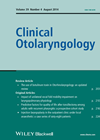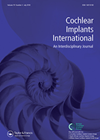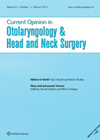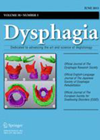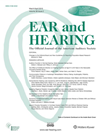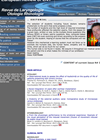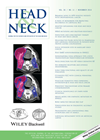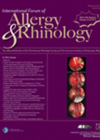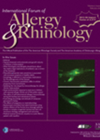
Journal Reviews archive for 2015
Unilateral vocal cord mobility impairment and laryngopulmonary physiology
The concept of iatrogenic recurrent laryngeal nerve injury following thyroid surgery is often considered with respect to voice change but its potential impact on airway physiology has thus far not been evaluated. A cross-sectional observational study reviewed 21 patients with...
How do the rejected candidates for cochlear implantation feel?
This interesting study from the UK explored, using personal interviews, how rejected candidates for cochlear implantation feel and deal with the decision not to implant. The authors assessed 10 adult cochlear implant candidates who had undergone the evaluation process were...
Does head trauma as aetiology of deafness affect the outcomes of cochlear implantation?
Head trauma associated with temporal bone fractures is a well known aetiological factor for deafness. The literature assessing the outcomes of cochlear implantation in such cases is rather limited. In this paper, the authors compared the performance of implantees with...
Treatment algorithm for olfactory disorders
The purpose of this paper is to review the current evidence in diagnosing olfactory disorders and suggest an algorithmic approach to patients with relevant complaints. Age-associated olfactory loss is often multifactorial and requires a careful history and physical exam. A...
Facial pain and headaches
This paper reviews the present knowledge and the recent publications on the cause, characteristics, course and treatment of chronic and recurring facial pain and headaches. Facial pain should be defined in terms of frequency, duration and severity, and also in...
Prophylactic swallowing exercises in head and neck cancer
Clinicians working in head and neck cancer will be familiar with the increased interest in prophylactic swallowing exercises to reduce the devastating impact of dysphagia experienced by patients undergoing radiation or chemo-radiation therapy. This study from Denmark is one of...
Communication patterns during audiological rehabilitation history taking
Nature of communication among patients, their communication partners and hearing healthcare professionals is an important part of audiological rehabilitation and can have some influence on the patient outcome. As history taking quite often forms the first instance of communication between...
To monitor or not to monitor
This is a report on an e-mail based survey of 1249 otologic surgeons on their practice regarding facial nerve monitoring during ear surgery. The response rate was very low (6.6%). The majority of responders (92%) stated that they did not...
Vestibular screening in occupational medicine
Occupational vestibular disorders carry a high medico legal and economic burden. The occupational medicine physician must rely on rapid, non-invasive, economical and reproducible screening tests. This article compares the simplified caloric test of Veits (CTV) with the skull vibration-induced nystagmus...
Hyperbaric oxygen therapy and flap reconstruction: does it help?
This is a multicentresite retrospective review from four clinics in the USA on patients who received radical debridement and free flap reconstruction for osteoradionecrosis (ORN) between 1 Jan 1995 and 30 June 2011. Patients were stratified divided based on having...
Back to basics: nasendoscopy beats CT, again!
There are few otolaryngologists (or patients) who have not been confronted with a computed tomography scan referring to a deviated septum. In a very similar way to the accidental findings of sinus mucosal thickening, the clinician is left in a...
Not so innocent, after all: a meta-analysis of the effects of intranasal corticosteroids on growth
The use of intranasal corticosteroids has revolutionised the management of allergic rhinitis and rhinosinusitis and there is now significant evidence of their safety. The problem with side-effects is that clinical studies are designed to demonstrate efficacy, but are underpowered to...

